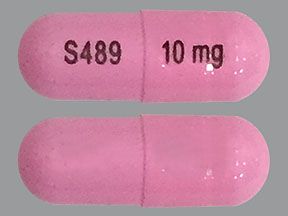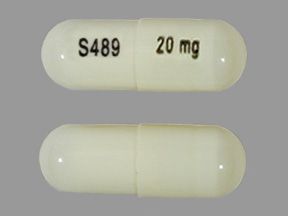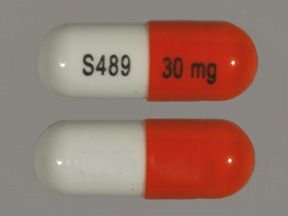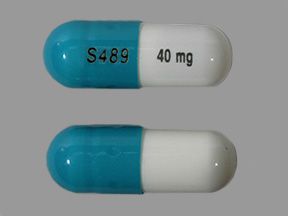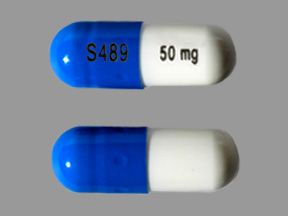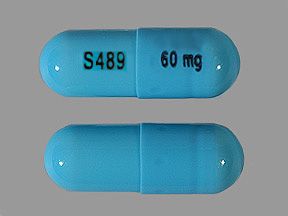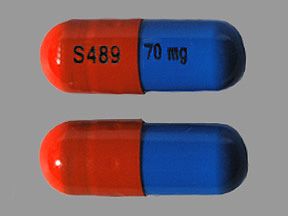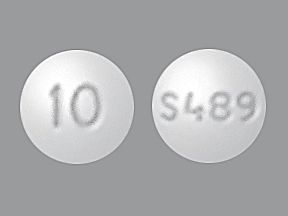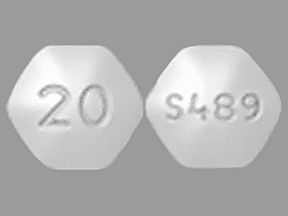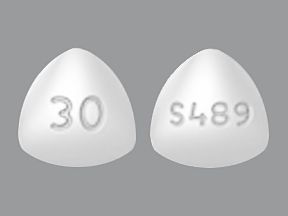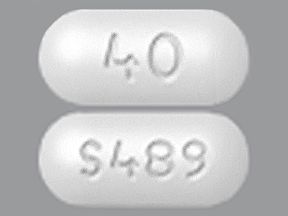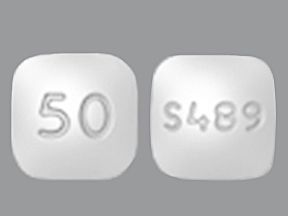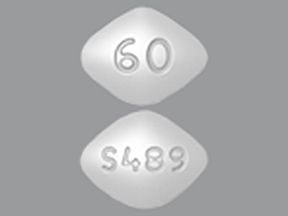Vyvanse (lisdexamfetamine) is a prescription drug that’s used to treat attention deficit hyperactivity disorder (ADHD) and binge eating disorder. Vyvanse comes as oral capsules and chewable tablets.
Vyvanse is used to treat:
- attention deficit hyperactivity disorder (ADHD) in adults and some children
- moderate to severe binge eating disorder (BED) in adults
Note: Vyvanse isn’t approved for weight loss or to treat obesity. Using similar drugs for these purposes has caused serious heart problems.
To learn more about Vyvanse’s uses, see the “What is Vyvanse used for?” section below.
Vyvanse basics
Vyvanse comes as capsules and chewable tablets. You’ll take either form by mouth.
Vyvanse contains the active drug lisdexamfetamine. It’s a type of stimulant drug called an amphetamine. Vyvanse is a brand-name medication that isn’t currently available in a generic form.
Like most drugs, Vyvanse may cause mild or serious side effects. The lists below describe some of the more common side effects that Vyvanse may cause. These lists don’t include all possible side effects.
Keep in mind that side effects of a drug can depend on:
- your age
- other health conditions you have
- other medications you take
- the condition you’re using the drug to treat
Your doctor or pharmacist can tell you more about the potential side effects of Vyvanse. They can also suggest ways to help reduce side effects.
Mild side effects
Here’s a list of some of the mild side effects that Vyvanse can cause. To learn about other mild side effects, talk with your doctor or pharmacist, or read Vyvanse’s prescribing information.
Mild side effects of Vyvanse that have been reported include:
- anxiety
- abdominal pain
- constipation
- dizziness
- dry mouth
- feeling jittery (tense, nervous, or unable to relax)
- headache
- insomnia (trouble falling asleep or staying asleep)
- loss of appetite or decreased appetite
- nausea, diarrhea, or vomiting
- “Vyvanse crash” (feeling irritable or tired as the drug’s effects wear off in your body)
- weight loss*
- effects on personality*
- mild allergic reaction*
Mild side effects of many drugs may go away within a few days or a couple of weeks. But if they become bothersome, talk with your doctor or pharmacist.
* For more information on this side effect, see the “Side effect focus” section below.
Serious side effects
Serious side effects from Vyvanse can occur, but they aren’t common. If you have serious side effects from Vyvanse, call your doctor right away. But if you think you’re having a medical emergency, call 911 or your local emergency number.
Serious side effects of Vyvanse that have been reported include:
- heart problems, some of which may be rare, such as:
- high blood pressure
- increased heart rate
- heart attack
- stroke
- sudden cardiac death
- mental health conditions, such as mania (periods of extreme excitement and energy) or psychosis
- problems with blood flow to your fingers and toes, such as Raynaud’s phenomenon
- serotonin syndrome (a condition caused by high levels of a chemical called serotonin in your body)
- slowed growth in children taking the drug
- boxed warning: risk of misuse and addiction,* which may lead to suicidal thoughts or behaviors
- severe allergic reaction*
* For more information on this side effect, see the “Side effect focus” section below.
Help is out there
If you or someone you know is in crisis and considering suicide or self-harm, please seek support:
- Call or text the 988 Suicide and Crisis Lifeline at 988.
- Text HOME to the Crisis Text Line at 741741.
- Not in the United States? Find a helpline in your country with Befrienders Worldwide.
- Call 911 or your local emergency services number if you feel safe to do so.
If you’re calling on behalf of someone else, stay with them until help arrives. You may remove weapons or substances that can cause harm if you can do so safely.
If you are not in the same household, stay on the phone with them until help arrives.
Side effect focus
Learn more about some of the side effects Vyvanse may cause.
Boxed warning
Vyvanse has a boxed warning. Boxed warnings are the most serious warnings from the Food and Drug Administration (FDA). Vyvanse’s boxed warning is described below.
Risk of misuse and addiction: Vyvanse has a risk of being misused. Misuse (also called abuse) means taking a drug in a way other than how it’s prescribed, such as taking it too often.
Misuse can lead to dependence and addiction. Dependence refers to needing the drug to feel and function like usual. Addiction (also called substance use disorder) refers to taking the drug even if it’s causing harmful outcomes.
Dependence, misuse, and addiction weren’t reported as side effects in studies of Vyvanse. But amphetamines (the group of drugs Vyvanse belongs to) are known to have a high risk of misuse, dependence, and addiction.
Below are a few symptoms that may happen if Vyvanse is misused:
- heavy breathing
- high blood pressure
- hostile or aggressive behavior
- increased heart rate
- insomnia (trouble falling asleep or staying asleep)
- sweating more than usual
- thoughts of harming yourself or others
Misusing Vyvanse also increases the risk of overdose* and death.
* For details about Vyvanse overdose, see “What should be done in case of overdose?” below.
What might help
If you’re concerned about your risk of misuse, dependence, or addiction with Vyvanse, talk with your doctor. They’ll check your risk before prescribing the drug. They’ll also continually monitor your risk during treatment with Vyvanse.
Tell your doctor right away if you have any symptoms of Vyvanse misuse. They may lower your dosage or assess your need to continue taking the drug.
Weight loss
You may have weight loss while you’re taking Vyvanse. This was a common side effect in studies of the drug.
Some people have loss of appetite or decreased appetite with Vyvanse. These side effects could also lead to weight loss.
Note: Vyvanse may cause weight loss as a side effect. But the drug isn’t approved to be used for weight loss or treatment of obesity. Using similar drugs for these purposes has caused serious heart problems.
What might help
If you’re concerned about weight loss while you’re taking Vyvanse, talk with your doctor. They can suggest healthy ways to increase your appetite or manage your weight.
Effects on personality
You may notice effects on your personality while you’re taking Vyvanse. This was a common side effect in studies of the drug, especially in children.*
Vyvanse may cause changes in your behavior or thoughts. For example, Vyvanse can cause:
- agitation
- emotional difficulties, such as the inability to control emotions
- irritability
- mood changes
* Vyvanse is used to treat attention deficit hyperactivity disorder (ADHD) in some children. For details, see the “What is Vyvanse used for?” section below.
What might help
Tell your doctor right away if you or your child notice any changes in personality while taking Vyvanse. Your doctor may recommend that you don’t take this drug.
Allergic reactionSome people may have an allergic reaction to Vyvanse. Allergic reaction was reported after the drug’s initial studies were done.
Symptoms of a mild allergic reaction can include:
- skin rash
- itchiness
- flushing (temporary warmth, redness, or deepening of skin color)
A more severe allergic reaction is rare but possible. Symptoms of a severe allergic reaction can include swelling under your skin, typically in your eyelids, lips, hands, or feet. They can also include swelling of your tongue, mouth, or throat, which can cause trouble breathing.
Call your doctor right away if you have an allergic reaction to Vyvanse. But if you think you’re having a medical emergency, call 911 or your local emergency number.
Your doctor will recommend the dosage of Vyvanse that’s right for you. Below are commonly used dosages, but always take the dosage your doctor prescribes.
Forms and strengths
Vyvanse comes in two forms that you’ll take by mouth:
- capsules
- chewable tablets
Each form of Vyvanse comes in the following strengths:
- 10 milligrams (mg)
- 20 mg
- 30 mg
- 40 mg
- 50 mg
- 60 mg
Vyvanse capsules also come in a 70-mg strength.
Recommended dosages
For attention deficit hyperactivity disorder (ADHD) and binge eating disorder (BED), the usual starting dosage is 30 mg of Vyvanse taken once per day. Your doctor may increase your dose over time.
For ADHD, Vyvanse dosages for adults are the same as the dosages for children. For BED, Vyvanse is only used in adults.
It’s best to take your Vyvanse dose in the morning. If you take it in the afternoon or evening, Vyvanse may cause insomnia (trouble falling asleep or staying asleep).
Vyvanse doesn’t have a recommended dosage by weight. Instead, your Vyvanse dosage depends on:
- the condition you’re taking Vyvanse to treat
- how well your condition is improving with Vyvanse treatment
- other health conditions you have, such as kidney problems
- other medications you’re taking
The highest dosage of Vyvanse that’s recommended is 70 mg daily.
To learn more about Vyvanse’s dosage, see this article.
Your doctor will explain how you should take Vyvanse. They’ll also explain how much to take and how often. Be sure to follow your doctor’s instructions.
You should swallow Vyvanse oral capsules. Vyvanse chewable tablets should be chewed completely before swallowing.
Here are some common questions about taking Vyvanse.
- What if I miss a dose of Vyvanse? If you miss a dose of Vyvanse in the morning, take your missed dose as soon as you remember. But keep in mind that taking Vyvanse in the afternoon or evening can cause problems with sleep. For this reason, it may be best to skip your missed dose and just take your usual dose the next day. If you aren’t sure whether to take a missed dose or skip it, check with your doctor or pharmacist.
- Will I need to use Vyvanse long term? Possibly. Some people may take Vyvanse long term. Your doctor will recommend the right amount of time for you to take the drug.
- Can Vyvanse be chewed, crushed, or split? Vyvanse comes as capsules and chewable tablets. You should do the following:
- Chew Vyvanse chewable tablets completely before you swallow them. Don’t crush or split them.
- Swallow Vyvanse capsules whole. Don’t chew or crush them. If you have trouble swallowing the capsules whole, you can split them open. The powder inside the capsules can be mixed with water, juice, or yogurt. Be sure to take the mixture right away, though. Don’t store it and eat or drink it later.
- Should I take Vyvanse with food? You can take Vyvanse with or without food.
- How long does Vyvanse take to work? Vyvanse starts working within 1 hour after you take a dose. But you may need to take the drug for a few weeks before you start noticing an improvement in your condition.
- What are signs that my Vyvanse dose is too high? Taking a high dose of Vyvanse can raise your risk for side effects. For details about side effects Vyvanse may cause, see the “What are Vyvanse’s side effects?” section above. Additionally, if your Vyvanse dose is too high, you may have symptoms of overdose. To learn more, see the “What should be done in case of overdose?” section below. Be sure to talk with your doctor if you’re concerned about your dosage being too high.
Questions for your doctorYou may have questions about Vyvanse and your treatment plan. It’s important to discuss all your concerns with your doctor.
Here are a few tips that might help guide your discussion:
- Before your appointment, write down questions such as:
- How will Vyvanse affect my body, mood, or lifestyle?
- Bring someone with you to your appointment if doing so will help you feel more comfortable.
- If you don’t understand something related to your condition or treatment, ask your doctor to explain it to you.
Remember, your doctor and other healthcare professionals are available to help you. And they want you to get the best care possible. So don’t be afraid to ask questions or offer feedback on your treatment.
Find answers to some commonly asked questions about Vyvanse.
How does Vyvanse work? What’s its half-life and how long does it stay in your system?
Vyvanse is a type of stimulant drug called an amphetamine. How Vyvanse works to treat attention deficit hyperactivity disorder (ADHD) and binge eating disorder (BED) isn’t known for sure.
The level of Vyvanse in your body typically peaks about 3.5 hours after you take a Vyvanse capsule. It peaks about 4.4 hours after you take a chewable tablet. When Vyvanse levels peak can differ depending on whether you take the drug with food. For instance, it can take longer for Vyvanse levels in your body to peak if you take Vyvanse with food rather than without it.
The effects of Vyvanse usually last for about 14 hours after you take a dose.
The half-life of Vyvanse describes how long it takes for half a dose of the drug to leave your body. Vyvanse’s half-life is about 12 hours. So, it takes about 12 hours for your body to get rid of half of a dose of Vyvanse.
It generally takes about five half-lives for a drug to leave your system completely. For Vyvanse, this means the drug will stay in your system for about two and a half days after your last dose.
To learn more about how Vyvanse may affect your body, see this article.
Does Vyvanse cause different side effects in females vs. males? What about children?
No, the side effects of Vyvanse aren’t known to be different for females and males.*
The only side effects of Vyvanse specific to females are related to taking Vyvanse during pregnancy or while breastfeeding. It may not be safe to take Vyvanse when pregnant or while breastfeeding. To learn more about this, see the “What should be considered before taking Vyvanse?” section below.
Vyvanse is used to treat ADHD in children ages 6 years and older. Most side effects of Vyvanse are expected to be the same in children as in adults. (For details, see the “What are Vyvanse’s side effects” section above.)
Certain side effects of Vyvanse may be more common in children. These include:
- loss of appetite
- weight loss
- effects on personality, such as emotional breakdown
- slowed growth
If you have questions about your or your child’s risk for certain side effects from Vyvanse, talk with your doctor.
* In this article, we use the terms “male” and “female” to refer to someone’s sex assigned at birth. For information about the difference between sex and gender, see this article.
Will I have withdrawal symptoms if I stop taking Vyvanse?
Yes, you may have withdrawal symptoms if you stop taking Vyvanse. Withdrawal symptoms are uncomfortable effects that occur when you stop taking a drug or substance that your body is used to. These symptoms are sometimes referred to as a “Vyvanse crash.”
“Vyvanse crash” refers to feeling irritable or tired as the effects of Vyvanse wear off.
If you have a Vyvanse crash during treatment, talk with your doctor. They may either recommend a different treatment for your condition or adjust your dosage of the drug.
During Vyvanse treatment, your doctor may have you stop taking Vyvanse at times to give your body a break from the drug. This is sometimes called a “drug holiday.”
For example, if you take the drug for ADHD, your doctor may suggest that you stop taking Vyvanse on weekends. This is because during weekends, you’re usually required to have less focus and concentration than during weekdays when you’re at work or school.
If your doctor recommends that you take breaks from Vyvanse, talk with them about the best way to do this. They can recommend ways to manage potential symptoms of withdrawal from Vyvanse during your drug holiday.
Is Vyvanse a controlled substance? And is it a stimulant or narcotic?
Yes, Vyvanse is a Schedule II controlled substance.
Controlled substances are drugs that have a risk of misuse, dependence, or addiction. Vyvanse has a boxed warning for the risk of misuse and addiction. This is the most serious warning from the Food and Drug Administration (FDA).
With misuse, a drug is taken in a way other than how it’s prescribed. Misuse can lead to dependence and addiction. Dependence refers to needing a drug to feel and function like usual. With addiction, a drug is taken even if it causes harmful outcomes.
Vyvanse is a type of stimulant drug called an amphetamine. Vyvanse isn’t a narcotic.
Narcotics are opioid drugs. “Narcotic” can refer to illegal opioids, such as heroin. It can also refer to prescription opioids, such as oxycodone (Oxaydo, Roxicodone) and fentanyl (Actiq, Duragesic).
* For details, see the “What are Vyvanse’s side effects?” section above.
Does Vyvanse treat depression or anxiety?
No, Vyvanse isn’t approved to treat depression or anxiety.
In fact, depression and anxiety are possible side effects of Vyvanse. So Vyvanse may not be the best treatment option for these conditions.
If you have questions about treatment options for depression or anxiety, talk with your doctor.
How does Vyvanse compare with Focalin and Dexedrine?
Vyvanse, Focalin, and Dexedrine are prescription medications used to treat ADHD in adults and children ages 6 years and older. They’re each a type of stimulant drug called an amphetamine.
Focalin comes in two forms:
- immediate-release (short-acting) tablets called Focalin
- extended-release (long-acting) capsules called Focalin XR
Dexedrine comes as sustained-release (long-acting) capsules.
To learn more about how Vyvanse, Focalin, and Dexedrine are alike and different, talk with your doctor or pharmacist.
Vyvanse and Adderall aren’t typically used together. But both drugs can be used alone to treat attention deficit hyperactivity disorder (ADHD). In addition to ADHD, Adderall is also approved to treat narcolepsy. And Vyvanse is also approved to treat binge eating disorder (BED).
Adderall comes in two forms:
- immediate-release (short-acting) tablets called Adderall
- extended-release (long-acting) capsules called Adderall XR
Adderall contains the active ingredients amphetamine and dextroamphetamine. Vyvanse contains the active ingredient lisdexamfetamine.
These drugs are each a type of stimulant drug called an amphetamine. This means the drugs work in similar ways to stimulate your nervous system and increase certain chemicals in the brain.
Adderall may be taken once or twice per day. Vyvanse is usually taken once per day.
If you’d like to know more about taking Vyvanse or Adderall for your condition, talk with your doctor. Also, check out this detailed comparison for more information about these medications.
When considering Vyvanse treatment, it’s important to talk with your doctor. Tell them about other medical conditions you may have. Also tell them about all other medications you’re taking.
These considerations are described in more detail below.
Interactions
Taking medications, vaccines, foods, and other things with a certain drug can affect how the drug works. These effects are called interactions.
Before taking Vyvanse, be sure to tell your doctor about all medications you take, including prescription and over-the-counter types. Also describe any vitamins, herbs, or supplements you use. Your doctor or pharmacist can tell you about any interactions these items may cause with Vyvanse.
Interactions with drugs or supplements
Vyvanse can interact with several types of drugs. These drugs include:
- monoamine oxidase inhibitor (MAOI) drugs,* such as:
- MAOI antidepressants
- the blood disorder drug methylene blue (ProvayBlue)
- the antibiotic linezolid (Zyvox)
- drugs that block the activity of an enzyme (type of protein) called CYP2D6, such as:
- drugs that increase your serotonin level, such as:
- sertraline (Zoloft)
- escitalopram (Lexapro)
- the herbal supplement St. John’s wort
- drugs that increase or decrease your urine pH level, such as:
- the altitude sickness drug acetazolamide
- medications that contain sodium bicarbonate (baking soda)
- the antidepressants:
This list does not contain all types of drugs that may interact with Vyvanse. Your doctor or pharmacist can tell you more about these interactions and any others that may occur with Vyvanse.
* Because of this interaction, you should not take Vyvanse with an MAOI. For more information, see the “Other warnings” section below.
Other interactions
Vyvanse can interact with caffeine.
Caffeine is a natural stimulant. It can be found in food such as chocolate and in drinks such as coffee, tea, and soda. Caffeine is also included in certain over-the-counter cold medications and weight loss supplements.
Vyvanse is also a stimulant. So taking it with caffeine can raise your risk for stimulant-related side effects from Vyvanse. Examples of these side effects include:
- anxiety
- feeling jittery (tense, nervous, or unable to relax)
- increased heart rate
- insomnia (trouble falling asleep or staying asleep)
It may be best to avoid large amounts of caffeine while you’re taking Vyvanse. Your doctor can recommend the amount of caffeine that’s safe for you to have while taking this drug.
Boxed warning
Vyvanse has a boxed warning about its risk of misuse and addiction. A boxed warning is the most serious warning from the Food and Drug Administration (FDA).
With misuse, a drug is taken in a way other than how it’s prescribed. Misuse can lead to dependence and addiction. It’s important to take Vyvanse exactly as your doctor prescribes.
For more information, see the “What are Vyvanse’s side effects?” section above.
Other warnings
Vyvanse may not be right for you if you have certain medical conditions or other factors that affect your health. Talk with your doctor about your health history before you take Vyvanse. Factors to consider include those in the list below.
- Tourette syndrome or tics. If you have verbal or physical tics or Tourette syndrome, or if you have a family history of this, be sure your doctor is aware. Amphetamine drugs, such as Vyvanse, can cause or worsen tics. These drugs can also make Tourette syndrome worse. If your doctor prescribes Vyvanse, they may monitor any tics or related symptoms you have. If your symptoms get worse with Vyvanse, they may have you switch to a different drug.
- Heart problems. If you or anyone in your family has had heart problems, talk with your doctor about taking Vyvanse. Examples include arrhythmia (abnormal heart rhythm), coronary artery disease (CAD), cardiomyopathy, and high blood pressure. Vyvanse can cause heart problems such as high blood pressure and increased heart rate. Your risk for these side effects is even higher if you already have heart problems before taking Vyvanse. If you have serious heart problems, your doctor may not prescribe Vyvanse for you.
- Kidney problems. If you have kidney problems, tell your doctor before starting Vyvanse. Your doctor may need to adjust your Vyvanse dosage. They may also monitor you closely for side effects from the drug.
- Mental health conditions such as psychosis or bipolar disorder. If you or anyone in your family has mental health conditions such as psychosis or bipolar disorder, talk with your doctor before starting Vyvanse. This drug can increase your risk for mania (periods of extreme excitement and energy) or psychosis (loss of touch with reality). Talk with your doctor about your risk for these side effects while you’re taking Vyvanse.
- Problems with blood flow to your fingers and toes. Vyvanse can cause problems with blood flow to your fingers and toes, such as Raynaud’s phenomenon. If you already have a condition that causes this problem, Vyvanse can make it worse. Be sure to tell your doctor about any problems you or your family members may have with blood flow to your fingers and toes. They can decide whether Vyvanse is right for you.
- Allergic reaction. If you’ve had an allergic reaction to Vyvanse or any of its ingredients, your doctor won’t prescribe Vyvanse. Ask your doctor what other medications are better options for you.
- Use with monoamine oxidase inhibitors (MAOIs). You should not take Vyvanse at the same time you’re taking MAOIs. MAOIs are a group of medications used to treat depression. Taking Vyvanse with MAOIs can raise your risk for dangerously high blood pressure. Taking both drugs together can also lead to serotonin syndrome. (This is a condition caused by high levels of a chemical called serotonin in your body.) Your doctor will have you wait at least 2 weeks after you’ve stopped taking an MAOI before you start Vyvanse.
Vyvanse and alcohol
The manufacturer of Vyvanse hasn’t stated that you shouldn’t drink alcohol while taking Vyvanse. But if you drink alcohol, it may be best to avoid it while you’re taking the drug.
This is because Vyvanse is a stimulant, while alcohol is a depressant. So Vyvanse and alcohol may hide each other’s effects. This means:
- drinking alcohol while taking Vyvanse could make it hard to tell whether Vyvanse is working to treat your condition
- taking Vyvanse while drinking alcohol could make it hard for you to keep track of the amount of alcohol you’ve had
Be sure to tell your doctor if you’ve ever misused alcohol. If you have, you may be at a higher risk for misuse and addiction with Vyvanse.*
If you have questions about drinking alcohol while taking Vyvanse, talk with your doctor.
* Vyvanse has a boxed warning about the risk of misuse and addiction. This is the most serious warning from the FDA. For details, see the “What are Vyvanse’s side effects?” section above.
Pregnancy and breastfeeding
If you can become pregnant or are breastfeeding, it’s important to consider whether Vyvanse is a safe choice for you.
You can also refer to this article for more information. If you have additional questions, talk with your doctor.
Vyvanse and Concerta are stimulant drugs used to treat attention deficit hyperactivity disorder (ADHD).
The active drug in Vyvanse is called lisdexamfetamine, and the active drug in Concerta is called methylphenidate.
For a side-by-side breakdown of Vyvanse and Concerta, see this article. Talk with your doctor about which drug is right for you.
Read on to learn about alternative drugs.
Vyvanse vs. Ritalin
Vyvanse and Ritalin are stimulant drugs used to treat ADHD.
Vyvanse contains the active drug lisdexamfetamine, and Ritalin contains the active drug methylphenidate.
If you’d like to know more about how Vyvanse and Ritalin are similar and unique, check out this comparison. Be sure to discuss with your doctor which drug is right for you.
Vyvanse vs. Strattera
Vyvanse and Strattera are drugs used to treat ADHD.
Vyvanse contains the stimulant lisdexamfetamine as its active ingredient. Strattera contains the non-stimulant atomoxetine as its active ingredient.
Talk with your doctor if you’re interested in knowing more about Vyvanse and Strattera’s similarities and differences. You can also read this detailed article that describes how these two drugs compare.
Vyvanse vs. Mydayis
Vyvanse and Mydayis are stimulant drugs used to treat ADHD.
Vyvanse contains the stimulant lisdexamfetamine as its active ingredient. Mydayis contains four types of amphetamines as its active ingredients.
To learn more about Vyvanse and Mydayis, see this detailed breakdown. Ask your doctor how the drugs compare and which one is better for your condition.
Yes, Vyvanse has the potential to be misused and can be addictive.
In fact, Vyvanse has a boxed warning for the risk of misuse (sometimes called “abuse”) and addiction. With misuse, a drug is taken in a way other than how it’s prescribed. Misuse can lead to dependence and addiction. Dependence refers to needing a drug to feel and function like usual. With addiction, a drug is taken even if it causes harmful outcomes.
A boxed warning is the most serious warning from the Food and Drug Administration (FDA). For details about Vyvanse’s boxed warning, see the “What are Vyvanse’s side effects?” section above.
Unlike those of other stimulants, Vyvanse’s effects aren’t fast-acting. For Vyvanse to work, it first must be broken down in your body, which takes time.
Vyvanse could possibly be misused if someone is trying to make its effects more intense or become “high.” But trying to intensify the effects of Vyvanse in your body is not recommended. Some people may try snorting Vyvanse to produce a “high” feeling. But this isn’t an approved use of the drug.
It’s important to understand that misusing Vyvanse can cause dangerous side effects. These include hostile or aggressive behavior, and thoughts about harming yourself or others. In rare cases, misuse of Vyvanse can cause side effects that are life threatening to you or others. Misusing Vyvanse also increases the risk of overdose* and death.
You should only take Vyvanse exactly as your doctor prescribes. If you’re concerned about your risk for misuse or addiction to Vyvanse, talk with your doctor.
* For details about Vyvanse overdose, see “What should be done in case of overdose?” below.
If you have attention deficit hyperactivity disorder (ADHD) or an eating disorder, your doctor may prescribe Vyvanse for you.
Vyvanse is a prescription drug that’s used to treat the following conditions:
- ADHD in adults and children ages 6 years and older. With ADHD, you have hyperactive behaviors. You also have trouble sitting still for long periods of time or focusing on a task.
- Moderate to severe binge eating disorder (BED) in adults. With BED, you eat a large amount of food in a short period of time, even when you aren’t hungry. You also have feelings of guilt or shame after doing so.
Vyvanse may cause weight loss as a side effect. But Vyvanse isn’t approved for weight loss or to treat obesity. Using similar drugs for these purposes has caused serious heart problems.
Vyvanse is a type of stimulant drug called an amphetamine. The way Vyvanse works to treat ADHD and BED isn’t known for sure.
Whether you have health insurance or not, cost may be a factor when you’re considering Vyvanse. What you’ll pay for Vyvanse may depend on several things, such as your treatment plan and the pharmacy you use.
You can visit Optum Perks to get price estimates of what you’d pay for Vyvanse when using coupons from the site. See the coupon options below. (Note: Optum Perks coupons cannot be used with insurance copays or benefits.)
You can also check out this article to learn more about saving money on prescriptions.
Save on your Vyvanse prescription
Save on Vyvanse without insurance.
Enter your information:
Location
47201
Dosage
50mg lisdexamfetamine dimesylate (30 Tablets)
Save money without using insurance
Simply show the Optum Perks coupon at your preferred pharmacy or order online and instantly save up to 80% without using insurance. The coupon doesn’t expire, so be sure to save it for refills.
Retail price refers to the manufacturer’s published list price and is up to date as of 3/2023. Retail and discounted prices are U.S.-only and can vary based on region and pharmacy. We cannot guarantee that the discounted price listed here will exactly match the price at your pharmacy. Please contact your pharmacy for the exact price.
Optum Perks and Healthline are subsidiaries of RVO Health.
Pricing source:Perks.optum.com

Do not take more Vyvanse than your doctor prescribes. Taking more than this can lead to serious side effects.
Symptoms of overdose
Symptoms caused by an overdose can include:
- abdominal cramps, diarrhea, nausea, or vomiting
- confusion
- fast breathing
- hallucinations (hearing or seeing things that aren’t actually there)
- heart problems, such as high blood pressure, low blood pressure, or irregular heartbeat
- restlessness
- tremor (shaking), convulsions, or twitching
What to do in case you take too much Vyvanse
Call your doctor if you think you’ve taken too much Vyvanse. You can also call 800-222-1222 to reach America’s Poison Centers or use its online resource. But if you have severe symptoms, immediately call 911 (or your local emergency number) or go to the nearest emergency room.
If you have questions about using Vyvanse for attention deficit hyperactivity disorder (ADHD) or binge eating disorder (BED), talk with your doctor or pharmacist.
Here are a few questions you can ask your doctor about Vyvanse:
- How is Vyvanse different from other drugs that treat ADHD and BED?
- Will Vyvanse interact with any medications I’m taking?
- Am I at high risk for dependence or misuse of Vyvanse?
To learn more about Vyvanse, see these articles:
- Dosage Details for Vyvanse
- Side Effects of Vyvanse: What You Need to Know
- Vyvanse and Cost: What You Need to Know
- Vyvanse Interactions: Alcohol, Medications, and Others
To get information on different conditions and tips for improving your health, subscribe to any of Healthline’s newsletters. You may also want to check out the online communities at Bezzy. It’s a place where people with certain conditions can find support and connect with others.
Q:
My doctor said Vyvanse can interact with drugs that change the pH level of my urine. How do those drugs affect Vyvanse?
AnonymousA:
Drugs that change the pH level (acidity) of your urine can either increase or decrease your blood levels of Vyvanse.
This can happen because your body gets rid of Vyvanse through your urine. Your urine pH level can affect the amount of Vyvanse that’s removed from your system.
Drugs that increase your urine pH level can lower the amount of Vyvanse that’s removed from your body. This can raise the levels of Vyvanse in your blood. Raising your blood level of Vyvanse may increase your risk for side effects.
For this reason, it’s recommended that you avoid taking substances or drugs that increase the pH of your urine, such as:
- acetazolamide
- sodium bicarbonate (baking soda)
On the other hand, drugs that decrease your urine pH can increase the amount of Vyvanse that’s removed from your body. This can reduce the level of Vyvanse in your blood. Lowering your blood level of Vyvanse may cause the drug to not work, or not work as well as it should.
Your doctor may increase your Vyvanse dosage if you need to take a drug that reduces the pH of your urine. Examples of substances that lower urine pH include:
- ascorbic acid (vitamin C)
- K-Phos
Before you start Vyvanse treatment, talk with your doctor about the medications you take, including prescription and over-the-counter drugs. It’s also important to tell them about any vitamins, herbs, or supplements you use. Your doctor or pharmacist can tell you about any interactions these items may cause with Vyvanse, including whether they affect your urine pH levels.
The Healthline Pharmacist TeamAnswers represent the opinions of our medical experts. All content is strictly informational and should not be considered medical advice.Disclaimer: Healthline has made every effort to make certain that all information is factually correct, comprehensive, and up to date. However, this article should not be used as a substitute for the knowledge and expertise of a licensed healthcare professional. You should always consult your doctor or another healthcare professional before taking any medication. The drug information contained herein is subject to change and is not intended to cover all possible uses, directions, precautions, warnings, drug interactions, allergic reactions, or adverse effects. The absence of warnings or other information for a given drug does not indicate that the drug or drug combination is safe, effective, or appropriate for all patients or all specific uses.

